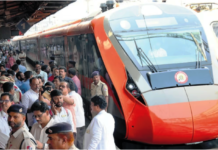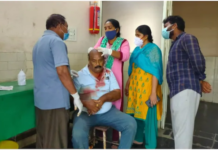Vijayawada, March 16, 2024 : As World Kidney Day is observed annually on the second Thursday in March, the spotlight turns to the concerning prevalence of Chronic Kidney Disease (CKD) in Andhra Pradesh, particularly in hotspot regions such as Uddanam in Srikakulam.
With more than 1 lakh cases reported every year, one in five men and one in four women above 65 years were diagnosed to be suffering from CKD in India. With more than 1 lakh cases reported every year, one in five men and one in four women above 65 years were diagnosed to be suffering from CKD in India. A study published in October 2020 underscored the alarming reality that CKD affects 32.2% of the population in the Uddanam area alone.
This revelation raises concerns, especially considering the potential occupational exposures among farmers contributing to this epidemic. While the study mostly focused on Uddanam region, which has been bearing the brunt of this health crisis for decades, it did not mention other affected areas like G Konduru in Krishna district and Kanigiri constituency in Prakasam district, which also collectively constitute hotspots for CKD in Andhra Pradesh. The prevalence of CKD has underlined the need for greater investment in large longitudinal epidemiologic research studies to uncovering the root causes of this health crisis and implementing effective interventions to mitigate its impact.
Throwing a light on the issue, Dr DLP Sai Kumar, consultant nephrologist in Guntur, revealed that systematic surveys and kidney biopsies conducted on patients from Uddanam during the late 1990s at King George Hospital (KGH) in Visakhapatnam led to the identification of CKD. He highlighted the prevalence of CKD in the area, affecting 18.5% of the population, with 75% of cases having unknown causes based on another study. Despite suspicions of water or food contamination with heavy metals or agrochemicals, the exact cause of CKD remains elusive, despite investigations into factors like high silica levels in water, the expert added. In response to this pressing issue, the State government has initiated proactive measures.
The setting up of a kidney research centre and nephrology department in Uddanam underscores a significant step towards addressing the healthcare needs of the local population. The decision to set up Nephrology and Neurology Departments in 11 government hospitals across the State is expected to provide essential medical services to those affected by kidney-related ailments. Meanwhile, Dr Ramesh Yelanati, consultant nephrologist in Vijayawada, pointed out that apart from socioeconomic factors and policy gaps, patient-related factors like delay in seeking care and clinician-related challenges such as inadequate CKD knowledge among physicians exacerbate the barriers to optimal kidney care according to the reports published in www.newindianexpress.com .
“Poor socioeconomic status, for instance, can limit access to nutritious foods and essential treatments, while fragmented nephrology care and the absence of renal registries hamper disease management efforts,” he maintained and added, “Raising awareness among both physicians and patients about CKD and its risk factors is paramount. Equally important is ensuring affordability and quality of available medications.”





















